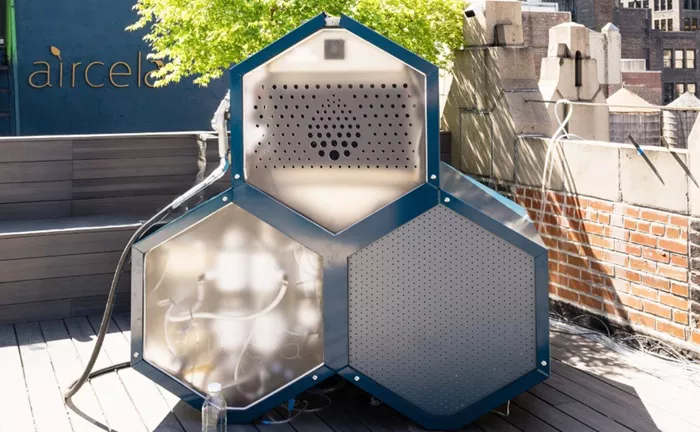On May 20th, 2025, the Aircela Machine was unveiled for the first time. This innovative device can create fossil-free gasoline on-site and in real time. It works without any fossil fuel inputs. Instead, it uses only air, water, and renewable electricity.
The machine’s design resembles a honeycomb. It is built for off-grid and distributed use, meaning it can operate independently and in various locations. The key to the Aircela Machine is its chemical process that converts air, water, and renewable energy into gasoline.
The machine uses a special water-based solution containing potassium hydroxide. This solution captures carbon dioxide from the air. Air flows through a chamber designed like a wind tunnel. Inside this chamber, the air meets the liquid sorbent, which absorbs the carbon dioxide. The design ensures that the air and liquid mix completely. This allows the machine to capture a large amount of carbon dioxide while using very little energy.
To produce gasoline, the machine also uses electrolysis. This process splits water into hydrogen and oxygen gases. The electrolysis runs on renewable electricity, such as solar power, which helps keep energy use low. After splitting the water, the machine keeps the hydrogen gas and releases the oxygen.
At the same time, the machine cleans the liquid sorbent. It removes the captured carbon dioxide so the sorbent can be reused. Once purified, the sorbent starts capturing carbon dioxide again. This cycle continues continuously.
Next, the machine combines the captured carbon dioxide with hydrogen gas to create methanol. Then, through chemical processes inside the machine’s chambers, the methanol is turned into gasoline. The user can then pump the fossil-free gasoline into a container for use in engines and cars.
The team behind Aircela credits Dr. Klaus Lackner, a physicist who pioneered direct air capture technology in the early 2000s. The company plans to begin scaling up production by late 2025. They aim to support residential, commercial, and industrial users with this technology.

